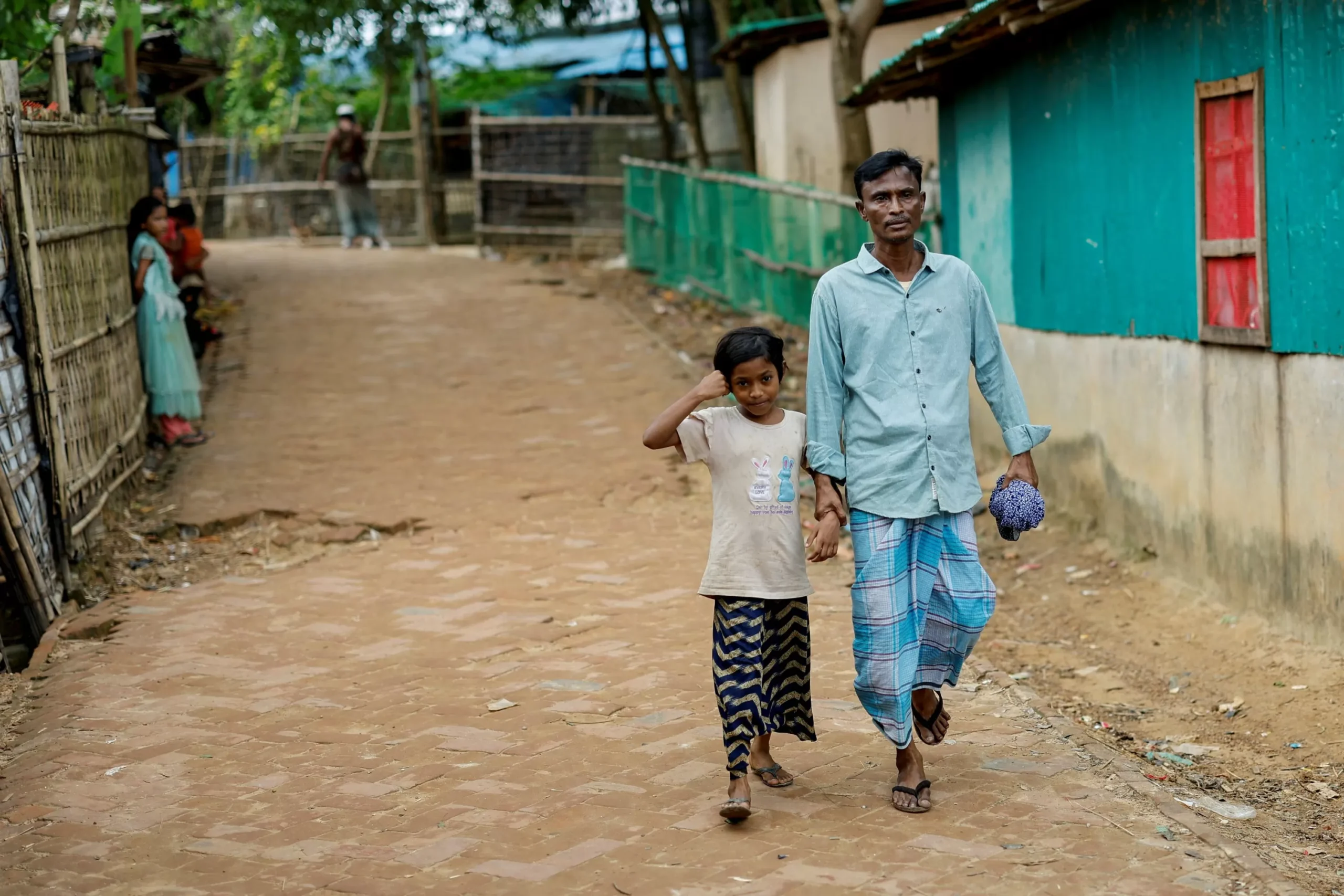Begum, a 35-year-old Rohingya refugee, has been through unimaginable hardships in her life. Fleeing from violence and persecution in Myanmar, she arrived in Bangladesh with her husband and seven daughters, seeking safety and a better future for her family. However, her hopes were soon shattered when funding cuts forced the closure of her daughter’s school and thousands of others in the refugee camps.
The Rohingya refugee crisis, which began in 2017, has been described as one of the worst humanitarian crises of our time. It has affected over a million people, with the majority being women and children. Begum’s family is just one of the many families who have been uprooted from their homes and forced to live in overcrowded and under-resourced refugee camps.
For Begum, education has always been a priority. She strongly believes that education is the key to a better future and has always encouraged her daughters to study. However, with the closure of schools in the refugee camps, her dreams for her daughters’ education seemed to be fading away.
But then, an unexpected turn of events brought some relief to Begum. She was able to marry off one of her daughters just before the funding cuts shuttered her school. This may seem like a small victory, but for Begum, it was a glimmer of hope in the midst of despair.
Marriage may not be the ideal solution for a young girl’s future, but in the refugee camps, it is often seen as a way to secure a better life. With the closure of schools, many families, like Begum’s, are left with no choice but to marry off their daughters at a young age. This not only puts an end to their education but also exposes them to various risks, including early pregnancy, domestic violence, and poverty.
Begum’s daughter, who is now married, will have a roof over her head and food on the table, something that Begum and her husband struggle to provide for their family. This marriage has brought some financial stability to Begum’s family, and she is grateful for that. However, Begum still dreams of a better future for her other daughters, and she hopes that one day they will have the opportunity to continue their education.
The closure of schools in the refugee camps has not only affected the education of thousands of children but has also taken away a sense of normalcy from their lives. For many of these children, school was a safe haven, a place where they could forget their troubles and just be kids. The closure of schools has left them with nothing to do, and they are forced to spend their days in the cramped and unhygienic conditions of the refugee camps.
The lack of education also means that these children are missing out on essential life skills, such as reading, writing, and basic math. These skills are crucial for their future, as they will need them to build a better life for themselves and their families. Without education, these children are at risk of being trapped in a cycle of poverty and hopelessness.
The closure of schools in the refugee camps is a result of funding cuts from international donors. These cuts have severely impacted the education sector in the camps, leaving many schools without proper facilities, teachers, and resources. The situation is dire, and urgent action is needed to ensure that these children have access to quality education.
Organizations and individuals around the world have been working tirelessly to support the education of Rohingya children in the refugee camps. However, with the recent funding cuts, their efforts have been hindered, and they are struggling to keep the schools running. It is crucial that the international community comes together to address this issue and provide the necessary funds to support the education of these children.
Begum’s story is just one of the many stories of resilience and hope in the face of adversity in the refugee camps. Despite the challenges, Begum remains determined to provide a better future for her daughters. She believes that education is the only way out of the refugee camps and hopes that one day her daughters will have the opportunity to fulfill their dreams.
In conclusion, Begum’s daughter’s marriage may have brought some temporary relief to her family, but it should not be seen as a solution to the education crisis in the refugee camps. Every child, regardless of their circumstances, has the right to education, and it is our collective responsibility to ensure that this right is upheld. We must come together to support the education of






![Complete BritRail Pass Guide [Types, How to Use It, Pros + Cons]](https://inside-news.uk/wp-content/uploads/2025/06/00221EB4-BCA2-4DBB-6CD4-83DBC37D71FA-120x86.webp)















